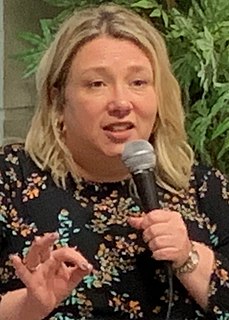A Quote by Leonard Nimoy
Other times, you're doing some piece of work and suddenly you get feedback that tells you that you have touched something that is very alive in the cosmos.
Related Quotes
I really like to absorb the project and watch it and work on the music a lot and just get the feel for it until eventually a moment comes where I know I've got it. A lot of it is trial and error. Some days a piece of music doesn't work then other day another piece of music finally says something and works with the picture and suddenly casts a light on all the other stuff you've done - probably because my mind is getting to understand it and the piece is educating me. I always feel like the score is in there already somewhere and I just have to channel it and accent it.
Most of life is on-the-job training. Some of the most important things can only be learned in the process of doing them. You do something and you get feedback - about what works and what doesn't. If you don't do anything for fear of doing it wrong, poorly, or badly, you never get any feedback, and therefore you never get to improve.
I complain a lot. That's one way of coping. But I'm in a profession where nobody tells you to quit. No board of other partners tells you it's time to get your gold watch, and no physical claim is made on you like an athlete or an actress. So I try to plug along on the theory that I can still do it. I still keep trying to produce prose, and some poetry, in the hope that I can find something to say about being alive, this country, but generally the human condition.
You make good work by (among other things) making lots of work that isn't very good, and gradually weeding out the parts that aren't good, the parts that aren't yours. It's called feedback, and it's the most direct route to learning about your own vision. It's also called doing your work. After all, someone has to do your work, and you're the closest person around.




































